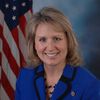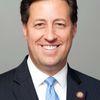Help us improve in just 2 minutes—share your thoughts in our reader survey.
Chaz Beasley
Chaz Beasley (Democratic Party) was a member of the North Carolina House of Representatives, representing District 92. He assumed office on January 1, 2017. He left office on December 31, 2020.
Beasley (Democratic Party) ran for election for Lieutenant Governor of North Carolina. He lost in the Democratic primary on March 3, 2020.
Committee assignments
2019-2020
Beasley was assigned to the following committees:
- Appropriations on Transportation Committee
- Education - K-12 Committee
- Appropriations Committee
- Insurance Committee
- House Judiciary Committee
- Rules, Calendar, and Operations of the House Committee
2017 legislative session
At the beginning of the 2017 legislative session, this legislator served on the following committees:
| North Carolina committee assignments, 2017 |
|---|
| • Banking |
| • Commerce and Job Development |
| • Finance |
| • Judiciary IV |
| • Transportation |
Sponsored legislation
The following table lists bills this person sponsored as a legislator, according to BillTrack50 and sorted by action history. Bills are sorted by the date of their last action. The following list may not be comprehensive. To see all bills this legislator sponsored, click on the legislator's name in the title of the table.
Elections
2020
Note: Van Duyn announced March 10 she would not request a Democratic primary runoff, making Lewis Holley the Democratic nominee.[1]
See also: North Carolina lieutenant gubernatorial election, 2020
North Carolina lieutenant gubernatorial election, 2020 (March 3 Republican primary)
North Carolina lieutenant gubernatorial election, 2020 (March 3 Democratic primary)
General election
General election for Lieutenant Governor of North Carolina
Mark K. Robinson defeated Yvonne Lewis Holley in the general election for Lieutenant Governor of North Carolina on November 3, 2020.
Candidate | % | Votes | ||
| ✔ |  | Mark K. Robinson (R) | 51.6 | 2,800,656 |
 | Yvonne Lewis Holley (D)  | 48.4 | 2,623,458 | |
| Total votes: 5,424,114 | ||||
 = candidate completed the Ballotpedia Candidate Connection survey. = candidate completed the Ballotpedia Candidate Connection survey. | ||||
| If you are a candidate and would like to tell readers and voters more about why they should vote for you, complete the Ballotpedia Candidate Connection Survey. | ||||
Do you want a spreadsheet of this type of data? Contact our sales team. | ||||
Democratic primary election
Democratic primary for Lieutenant Governor of North Carolina
The following candidates ran in the Democratic primary for Lieutenant Governor of North Carolina on March 3, 2020.
Candidate | % | Votes | ||
| ✔ |  | Yvonne Lewis Holley  | 26.6 | 309,274 |
 | Terry Van Duyn | 20.4 | 237,885 | |
 | Chaz Beasley | 18.9 | 219,503 | |
 | Allen Thomas Jr.  | 18.8 | 219,229 | |
 | Bill Toole  | 9.6 | 111,843 | |
| Ronald L. Newton | 5.7 | 65,970 | ||
| Total votes: 1,163,704 | ||||
 = candidate completed the Ballotpedia Candidate Connection survey. = candidate completed the Ballotpedia Candidate Connection survey. | ||||
| If you are a candidate and would like to tell readers and voters more about why they should vote for you, complete the Ballotpedia Candidate Connection Survey. | ||||
Do you want a spreadsheet of this type of data? Contact our sales team. | ||||
Republican primary election
Republican primary for Lieutenant Governor of North Carolina
The following candidates ran in the Republican primary for Lieutenant Governor of North Carolina on March 3, 2020.
Candidate | % | Votes | ||
| ✔ |  | Mark K. Robinson | 32.5 | 240,843 |
 | Andy Wells | 14.6 | 107,824 | |
 | Mark Johnson | 12.0 | 89,200 | |
| John Ritter | 11.5 | 85,023 | ||
 | Renee Ellmers | 6.8 | 50,526 | |
 | Greg Gebhardt  | 6.8 | 50,474 | |
 | Deborah Cochran  | 6.5 | 48,234 | |
 | Scott Stone  | 6.5 | 48,193 | |
| Buddy Bengel | 2.8 | 20,395 | ||
| Total votes: 740,712 | ||||
 = candidate completed the Ballotpedia Candidate Connection survey. = candidate completed the Ballotpedia Candidate Connection survey. | ||||
| If you are a candidate and would like to tell readers and voters more about why they should vote for you, complete the Ballotpedia Candidate Connection Survey. | ||||
Do you want a spreadsheet of this type of data? Contact our sales team. | ||||
Campaign finance
2018
General election
General election for North Carolina House of Representatives District 92
Incumbent Chaz Beasley defeated Deborah Ware in the general election for North Carolina House of Representatives District 92 on November 6, 2018.
Candidate | % | Votes | ||
| ✔ |  | Chaz Beasley (D) | 70.0 | 20,043 |
| Deborah Ware (R) | 30.0 | 8,580 | ||
| Total votes: 28,623 | ||||
 = candidate completed the Ballotpedia Candidate Connection survey. = candidate completed the Ballotpedia Candidate Connection survey. | ||||
| If you are a candidate and would like to tell readers and voters more about why they should vote for you, complete the Ballotpedia Candidate Connection Survey. | ||||
Do you want a spreadsheet of this type of data? Contact our sales team. | ||||
Democratic primary election
Democratic primary for North Carolina House of Representatives District 92
Incumbent Chaz Beasley advanced from the Democratic primary for North Carolina House of Representatives District 92 on May 8, 2018.
Candidate | ||
| ✔ |  | Chaz Beasley |
 = candidate completed the Ballotpedia Candidate Connection survey. = candidate completed the Ballotpedia Candidate Connection survey. | ||||
| If you are a candidate and would like to tell readers and voters more about why they should vote for you, complete the Ballotpedia Candidate Connection Survey. | ||||
Do you want a spreadsheet of this type of data? Contact our sales team. | ||||
Republican primary election
Republican primary for North Carolina House of Representatives District 92
Deborah Ware advanced from the Republican primary for North Carolina House of Representatives District 92 on May 8, 2018.
Candidate | ||
| ✔ | Deborah Ware | |
 = candidate completed the Ballotpedia Candidate Connection survey. = candidate completed the Ballotpedia Candidate Connection survey. | ||||
| If you are a candidate and would like to tell readers and voters more about why they should vote for you, complete the Ballotpedia Candidate Connection Survey. | ||||
Do you want a spreadsheet of this type of data? Contact our sales team. | ||||
2016
Elections for the North Carolina House of Representatives took place in 2016. The primary election was held on March 15, 2016, and the general election was held on November 8, 2016.[2] The candidate filing deadline was December 21, 2015.[3] Incumbent Charles Jeter (R) resigned from the seat on July 25, 2016. Justin Moore (R) was appointed to the seat on August 23, 2016, to fill Jeter's remaining term. Beth Danae Caulfield replaced Jeter on the ballot after he resigned.
Chaz Beasley defeated Beth Danae Caulfield in the North Carolina House of Representatives District 92 general election.[4][5]
| North Carolina House of Representatives, District 92 General Election, 2016 | ||||
|---|---|---|---|---|
| Party | Candidate | Vote % | Votes | |
| Democratic | 54.38% | 22,941 | ||
| Republican | Beth Danae Caulfield | 45.62% | 19,246 | |
| Total Votes | 42,187 | |||
| Source: North Carolina State Board of Elections | ||||
Chaz Beasley ran unopposed in the North Carolina House of Representatives District 92 Democratic primary.[6][7]
| North Carolina House of Representatives, District 92 Democratic Primary, 2016 | ||
|---|---|---|
| Party | Candidate | |
| Democratic | ||
Incumbent Charles Jeter defeated Tom Davis in the North Carolina House of Representatives District 92 Republican primary.[8][9]
| North Carolina House of Representatives, District 92 Republican Primary, 2016 | ||||
|---|---|---|---|---|
| Party | Candidate | Vote % | Votes | |
| Republican | 50.24% | 3,731 | ||
| Republican | Tom Davis | 49.76% | 3,696 | |
| Total Votes | 7,427 | |||
Campaign finance summary

Campaign themes
2020
Ballotpedia survey responses
See also: Ballotpedia's Candidate Connection
Chaz Beasley did not complete Ballotpedia's 2020 Candidate Connection survey.
Campaign website
| “ |
INVESTING IN EDUCATION As a product of our public schools, Chaz recognizes that his success has been the direct result of the quality education he received right here in North Carolina. There are many other students who also have the talent and ability to lead transformative lives. Therefore, it is crucial that we invest in our children’s education, equipping them to meet their potential. Still, our schools are facing unprecedented challenges. Schools are being asked to do more and more with fewer resources. Pay for our teachers continues to be among the lowest in the country. And, short-term decision-making in the General Assembly fails to recognize that many students are in our public schools for a decade or more. Now is the time to make education a real priority – not just in words, but in action. We can accomplish this by:
EXPANDING ACCESS TO HEALTHCARE Every person in our community deserves access to quality, affordable healthcare. Not only is expanding access to healthcare the right thing to do – it’s also a smart investment for our families, our businesses, and our economy as a whole. Access to healthcare means that families can live without the fear of medical bills causing bankruptcy. It means that parents and students alike can pursue their dreams without basing career choices upon the availability of health insurance. It means that entrepreneurs can launch new businesses without fear of losing their employer-based insurance. In Raleigh, Chaz has fought for expanded access to healthcare and will continue that fight until every North Carolinian has access to the quality healthcare they need and deserve. We can support quality healthcare by:
DEVELOPING A WORLD-CLASS TRANSPORTATION NETWORK North Carolina is a growing state that stretches from the mountains to the sea. We’re an attractive destination for tourists and new residents alike. Still, growth brings its challenges – and our transportation system has fallen behind. In order to sustain growth and provide excellent quality-of-life, we need to build infrastructure that prepares us for the future. We can develop a world-class transportation network by:
CREATING JOBS & GROWING THE ECONOMY We’ve got a strong economy here in North Carolina. It’s made us a place that attracts people from all over the nation – and the world. Still, as our economy continues to grow, we’ve got to make sure that everyone in our state has the chance to participate in that success. From the rural communities where Chaz was raised to the urban and suburban areas he now represents in the General Assembly, every North Carolinian has something to contribute. Chaz is running for Lieutenant Governor because we need to build an economy that works for everyone. We can do this by:
FIGHTING FOR EQUITY Our state is a patchwork of many different communities, made of people from a variety of backgrounds. While many different paths led us here, we recognize that our futures are inextricably tied together. We realize that not only is there strength in our diversity, there is strength in our versatility. Despite this, we face challenges that pull at the very threads with which we are woven together. Rather than focusing on the everyday needs of North Carolinians, some in Raleigh are pushing a divisive social agenda. We cannot stand idly by as some use race, gender, and sexual orientation to open old wounds – or create new ones. Instead, we must recognize the lessons from our past challenges while remaining hopeful for North Carolina’s future. By standing by our core principles, we are:
PROTECTING OUR ENVIRONMENT North Carolina is blessed with incredible natural beauty – from the Appalachian Mountains in the west to the beautiful Atlantic coastline on the east. It’s an important driver of tourism and travel. Unfortunately, we have not done enough in recent years to protect our environment – and our people deserve better. Specifically, we can defend our environment by:
|
” |
| —Chaz Beasley 2020 campaign website[11] | ||
2016
Beasley's campaign website highlighted the following issues:
| “ |
Strengthening Our Economy
Investing in Education
Promoting Equality
|
” |
| —Chaz Beasley[12] | ||
Scorecards
A scorecard evaluates a legislator’s voting record. Its purpose is to inform voters about the legislator’s political positions. Because scorecards have varying purposes and methodologies, each report should be considered on its own merits. For example, an advocacy group’s scorecard may assess a legislator’s voting record on one issue while a state newspaper’s scorecard may evaluate the voting record in its entirety.
Ballotpedia is in the process of developing an encyclopedic list of published scorecards. Some states have a limited number of available scorecards or scorecards produced only by select groups. It is Ballotpedia’s goal to incorporate all available scorecards regardless of ideology or number.
Click here for an overview of legislative scorecards in all 50 states. To contribute to the list of North Carolina scorecards, email suggestions to editor@ballotpedia.org.
2020
In 2020, the North Carolina State Legislature was in session from April 28 to September 3. The legislature was in recess from July 8 to September 1 and then reconvened September 2 to September 3.
- Legislators are scored on their votes on conservative issues.
- Legislators are scored on their votes on bills related to business issues.
- Legislators are scored on their votes on bills relating to family issues.
- Legislators are scored on their votes on environment and conservation issues.
- Legislators are scored on their votes on conservative issues.
2019
| To view all the scorecards we found for this legislator in 2019, click [show]. |
|---|
|
In 2019, the General Assembly of North Carolina was in session from January 9 through August 27.
|
2018
| To view all the scorecards we found for this legislator in 2018, click [show]. |
|---|
|
In 2018, the General Assembly of North Carolina was in session from January 10 through July 4.
|
2017
| To view all the scorecards we found for this legislator in 2017, click [show]. |
|---|
|
In 2017, the General Assembly of North Carolina was in session from January 11 through June 30. Before the legislature adjourned its regular scheduled session, the legislature scheduled the following additional session dates: August 3, August 18 to August 25, August 28 to August 31, and October 4 to October 17.
|
See also
2020 Elections
- North Carolina House of Representatives
- North Carolina House of Representatives District 92
- North Carolina House of Representatives elections, 2016
- North Carolina State Legislature
External links
- Search Google News for this topic
- Office website
- Campaign website
- Campaign Facebook page
- Campaign Twitter page
- Campaign Instagram page
- Profile on North Carolina State Legislature website
Footnotes
- ↑ Smoky Mountain News, "Van Duyn won't call for runoff in lieutenant governor election," March 10, 2020
- ↑ The primary for U.S. congressional elections was rescheduled to June 7, 2016, following legal challenges to North Carolina's district maps. State races were unaffected.
- ↑ North Carolina State Board of Elections, "2016 Candidate Filing," accessed December 22, 2015
- ↑ North Carolina State Board of Elections, "Candidate Listing," accessed August 23, 2016
- ↑ North Carolina State Board of Elections, "2016 General Election results lookup," accessd December 21, 2016
- ↑ North Carolina State Board of Elections, "Candidate Listing," accessed January 4, 2016
- ↑ North Carolina State Board of Elections, "03/15/2016 Official primary results - Statewide," March 15, 2016
- ↑ North Carolina State Board of Elections, "Candidate Listing," accessed January 4, 2016
- ↑ North Carolina State Board of Elections, "03/15/2016 Official primary results - Statewide," March 15, 2016
- ↑ 10.0 10.1 Note: This text is quoted verbatim from the original source. Any inconsistencies are attributable to the original source.
- ↑ Chaz Beasley 2020 campaign website, "Issues," accessed February 28, 2020
- ↑ Chaz Beasley, "Our values," accessed September 23, 2016
| Political offices | ||
|---|---|---|
| Preceded by Justin Moore (R) |
North Carolina House - District 92 2017-present |
Succeeded by Terry Brown Jr. (D) |
 |
State of North Carolina Raleigh (capital) |
|---|---|
| Elections |
What's on my ballot? | Elections in 2025 | How to vote | How to run for office | Ballot measures |
| Government |
Who represents me? | U.S. President | U.S. Congress | Federal courts | State executives | State legislature | State and local courts | Counties | Cities | School districts | Public policy |





